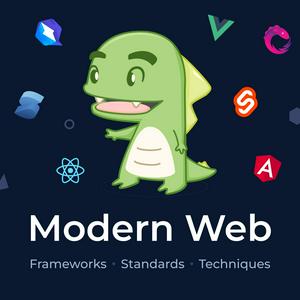On this episode of the Modern Web Podcast, hosts Rob Ocel and Danny Thompson welcome Miles Ward, CTO of SADA, for an in-depth conversation about the intersection of cloud computing and AI. Miles shares his career journey from early days at AWS and Google Cloud to leading SADA through its acquisition by Insight, offering a rare perspective on the evolution of solutions architecture and cloud adoption at scale.The discussion covers the realities of cloud “repatriation,” why GPUs have shifted some workloads back on-prem or to niche “neo-cloud” providers, and how cloud infrastructure remains the backbone of most AI initiatives. Miles breaks down practical concerns for organizations, from token pricing and GPU costs to scaling AI features without blowing budgets. He also highlights how AI adoption exposes weak organizational habits, why good data and strong processes matter more than hype, and how developers should view AI as intelligence augmentation rather than replacement.Key Takeaways:- Miles Ward, former early AWS Solutions Architect, founder of the SA practice at Google Cloud, and now CTO at SADA (acquired by Insight), brings a deep history in scaling infrastructure and AI workloads.- Cloud repatriation is rare. The main exception is GPUs, where companies may rent from “neo-clouds” like CoreWeave, Crusoe, or Lambda, or occasionally use on-prem for cost and latency reasons, though data-center power constraints make this difficult.- Cloud remains essential for AI. Successful initiatives depend on cloud primitives like data, orchestration, security, and DevOps. Google’s integrated stack (custom hardware, platforms, and models) streamlines development. The best practice is to build in cloud first, then optimize or shift GPU inference later if needed.- Costs and readiness are critical. Organizations should measure AI by business outcomes rather than lines of code. Token spending needs calculators, guardrails, and model routing strategies. On-prem comes with hidden costs such as power, networking, and staffing. The real bottleneck for most companies is poor data and weak processes, not model quality.Miles Ward on Linkedin: https://www.linkedin.com/in/rishabkumar7/Rob Ocel on Linkedin: https://www.linkedin.com/in/robocel/Danny Thompson on Linkedin: https://www.linkedin.com/in/dthompsondev/This Dot Labs Twitter: https://x.com/ThisDotLabsThis Dot Media Twitter: https://x.com/ThisDotMediaThis Dot Labs Instagram: https://www.instagram.com/thisdotlabs/This Dot Labs Facebook: https://www.facebook.com/thisdot/This Dot Labs Bluesky: https://bsky.app/profile/thisdotlabs.bsky.socialSponsored by This Dot Labs: https://ai.thisdot.co/


